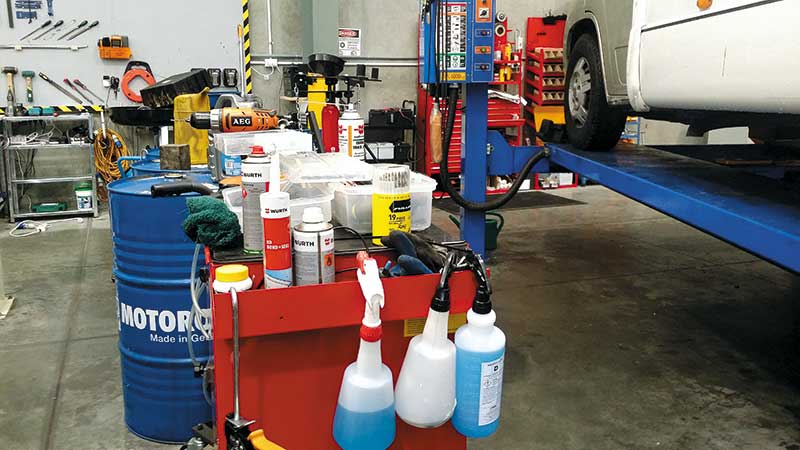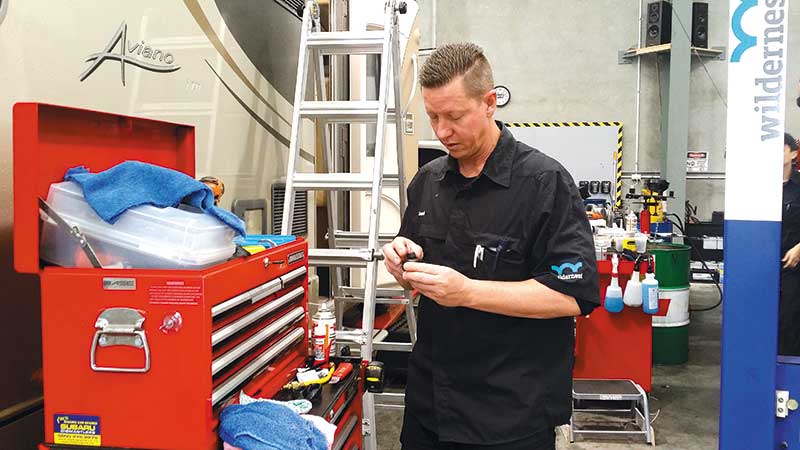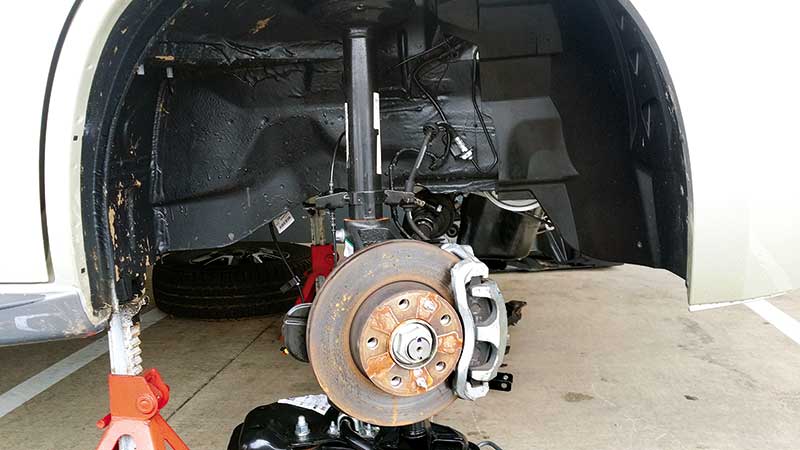Servicing your caravan or motorhome will pay dividends in the long run. Not only will you have a record of maintenance in the event you wish to sell the vehicle, you will also have the security that your vehicle is in tip-top condition to ensure the safety of you and your family.
Basic maintenance work can be carried out by most owners, but when it comes to the more technical aspects, you will want to call in the experts.
There are three main areas of maintenance to consider: annual servicing – best left to the experts; basic maintenance and checks of all working parts; and winterising your vehicle.
Naturally you will want to undertake regular checks to ensure your vehicle is legally roadworthy. You can easily check the basics like tyres (don’t forget the spare), lights, or brakes and checking that you have sufficient oil, water, windshield washer, transmission and brake fluid are no brainers.
These are all things you can do regularly to ensure your vehicle is in top shape. But when it comes to electricity and gas, you are legally obliged to call in the experts. Your vehicle warranty may also require it, so be sure to check the fine print.
Ditto for any warranties that may be additional, such as refrigerators, air conditioners and heaters.
Basic DIY and routine maintenance chores
- Wash exterior and awning.
- Change bulbs where necessary.
- Don’t overlook things like seat covers and window treatments. The old adage a stitch in time is certainly true here. By undertaking running repairs on upholstery, zips, blinds and curtain tracks you may avoid a costly exercise further down the track. Clean and mend upholstery, vacuum tracks and use the recommended products to free up any sticky tracks and closures.
- Check all vents to ensure they are free of obstruction. Lift beds and open all storage areas and cupboards to check for damp. Use your nose, eyes and the aid of a torch or damp meter to look deep into recesses for any signs of damp or mould which may be traced to leaks. If you have a damp meter, use that to establish that it is less than 15 percent, which is considered normal. Over that and you may have a water ingress issue or a leak. Expert help may be needed to ensure you do not have a problem with damp.
- Check taps, shower heads and sinks for signs of build-up, leakage or corrosion.
- Check and oil hinges and closures.
- Check hoses and connections.
- Run the gas to ensure the flame is burning a nice clear blue.
- Check pins, plugs, sockets and couplings for wear and tear.
- Check battery levels.
- Check fuses and cut-off switches.
- Test smoke alarms and gas detectors.
- Check fire extinguishers.
- Touch up scratches and minor bodywork.
- Apply common sense to any other routine maintenance, making careful note of the things you need to bring to the attention of the experts. Book early for your annual or bi-annual service with a trusted service centre.
When to call in the experts
- If you have concerns about damp.
- For all gas and electrical work.
- All work on the chassis, tow gear and brakes. These require specialist equipment.
- Warranty work – don’t risk invalidating your warranties.
- Repairs to bodywork.
- New fitments like racks, satellites solar panels or extra storage.
- Winterising your vehicle for road travel or for lock up storage.
- Engine maintenance.
- Electronic work.
How to choose the right service centre
For when the job is simply too big for you…- Accreditations. Is the service centre endorsed by a reputable company or brand? Are certificates or awards clearly on display? If not don’t be afraid to ask what qualifications have been obtained by the service team.
- Are warranties offered? A good technician will stand by their work.
- Have they been referred or recommended by word of mouth. Look for testimonials.
- Do they agree to keep you informed of all extra costs and repairs?
- Are they busy? Choosing a good service centre is like choosing a good restaurant. Look for a crowd. Especially now as the RV industry is experiencing unprecedented growth. Expect delays when making a booking and get in early to avoid a seasonal crush.








